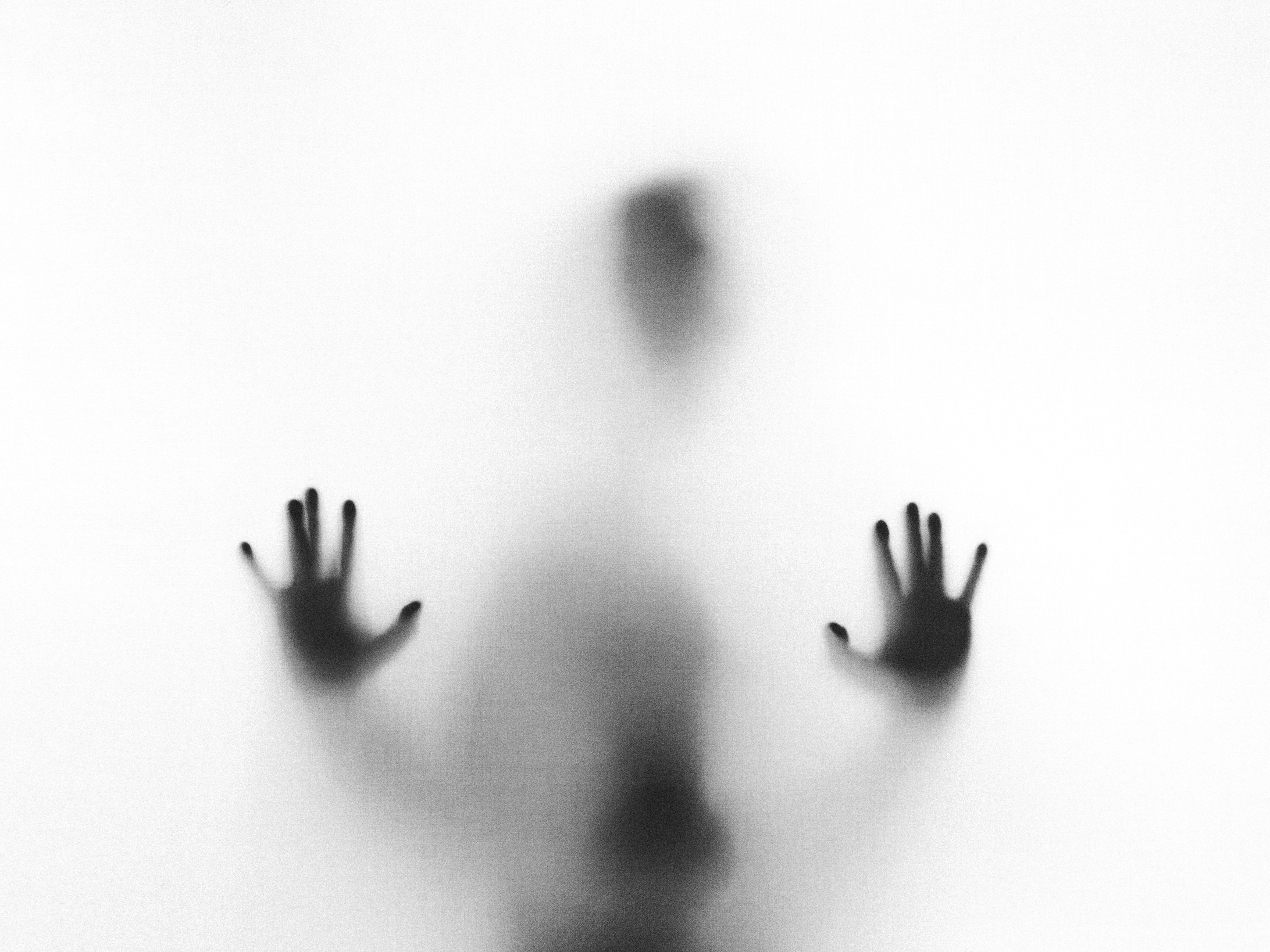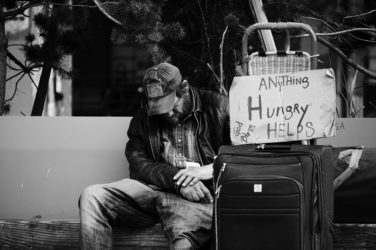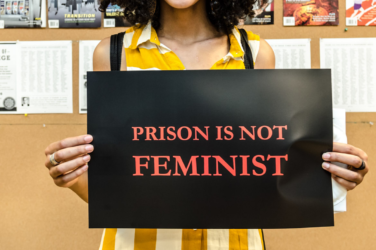No one can claim that Nic Castle isn’t brave.
“I was tracking one of the major drug dealing gangs in my area,” he begins. “I had good intel, so I stopped them–but then one turned around and stuck a handgun in my face.”
“I had a split second to react, so I just took out my baton and gave him a good hiding. Then I turned to his mates and said, ‘You come near me, you’ll get the same–don’t ever pull a weapon on me or any copper.’”
Castle joined the police in Burnley, a troubled post-industrial town in northern England, in 1996. He quickly established himself as capable and determined, and spent much of his career deployed on high-pressure undercover operations. Then, in one instant, this career was brutally ripped away.
“My approach was always to work with the community, and they were incredibly supportive,” he continues. “I knew there was one particular gang making major moves in the drugs trade, and I knew they were using serious fear and intimidation to control their own community. Through my own links in that community, though, I was able to gather intel and put them under real pressure.”
“Then one day I was pursuing a leader of this gang–and was hit by an organized ambush. They attacked me with bricks, bashing me in the head, back, legs–everywhere. I ended up in a wheelchair for a while, with damage to nerves in my spine, and to my legs and temporal lobe.”
Physically tough, Castle fought his way through the recovery process from these injuries. But the real battle turned out to be the psychological impact. He soon found himself in a downward spiral of post-traumatic stress disorder.
“The final straw came when I was driving to work one morning and found myself going down the wrong side of the road into incoming traffic.”
“At first I just shut down, I was completely numb and couldn’t show or experience any emotions towards anyone or anything,” he recounts. “But it quickly expanded into flashbacks, where I’d go into a sort of dissociative trance and it was like I was actually in these situations–being attacked again in real time. That ambush opened a Pandora’s box, and every prior instance where I’d been in danger came pouring out. Sleep becomes basically impossible, because every time you close your eyes it’s just another chance to be re-traumatized.”
“The final straw came when I was driving to work one morning and found myself going down the wrong side of the road into incoming traffic. I had completely dissociated. That moment was the end of my police career.”
The global War on Drugs has untold victims, from the millions incarcerated to the hundreds of thousands who have lost their lives due to unregulated drug markets or brutal enforcement, and the families and communities they leave behind. Often forgotten on this list are the foot soldiers in this war–the rank-and-filed officers ordered out, like Nic Castle, to engage in a misguided and needless conflict at great personal risk.
PTSD, Addiction and Suicide–Consequences of Militarization
Unfortunately, Castle’s condition is far from unique in international policing. According to recent analysis by the National Alliance on Mental Illness in the US, up to 19 percent of police officers in the US experience symptoms of PTSD, as compared to just 3.5 percent of the general population. Addiction rates are almost three times higher. More American police die by suicide than in the line of duty.
The law enforcement establishment, despite its complicity in the drug-war catastrophe, seems woefully unprepared to deal with this aspect of police welfare. Castle sighs: “People on the force seemed to know how to handle broken bones and injuries like that–but as soon as it came to mental health, it was like they just didn’t have a clue. The only person who really helped was my rep from our union, the Police Federation.”
As awareness of PTSD is still only emerging, it is difficult to trace how this problem has developed over time. But our prediction–based on considerable first-hand experience and anecdotal evidence–is that we are standing on the edge of a precipice. The coming years will see a tidal wave of PTSD in international policing.
When you’re holding a big, expensive, military-grade hammer, a lot of problems begin to look like nails.
There is a fairly simple reason behind this. PTSD is often thought of as a “military illness.” And when you militarize law enforcement, you also import military illnesses.
Evidence of the militarization of law enforcement is difficult to quantify, but easy to observe. In the US, the federal 1033 Program has facilitated local police purchases of military equipment, including grenade launchers, .50 caliber rifles and even bayonets.
This has been sold to the public in terms of police safety and effectiveness in extreme circumstances such as terrorist attacks. However, as the cliché goes, when you’re holding a big, expensive, military-grade hammer, a lot of problems begin to look like nails.
SWAT teams were originally designed to handle rare hostage situations and active shooters, but are now ubiquitously used as high-impact search teams, the vast majority for drug warrants. One study showed that 90 percent of SWAT deployments in Maryland were for search warrants–and disproportionately used in neighborhoods with a higher share of African-American residents.
A Battlefield You Can Never Escape
You can’t declare a War on Drugs without declaring a war. This drug war has shifted the fundamental relationship between police and community. There is quite a bit of evidence that militarized policing does not actually improve effectiveness, and can damage trust in law enforcement. Far less has been written about the effect on police themselves.
“That image of his mother crying over his body with the chord still around his neck haunted me far more than any guns shoved in my face.”
Which brings us back to Nic Castle: “When I first started on the force there was one lad we picked up–a drug user from the next town over. My tutor gave me instructions to stop and search this guy every chance we got. It was part of a new strategy of identifying problematic elements and disrupting their routines.”
“I had joined the police to lock up gangsters and bad guys, so turning over this young lad didn’t really feel right–but I was under orders, so I did really go after him.”
“Then I was called to ID a body at the morgue. It was this boy, who had hung himself–leaving a suicide note saying the police pressure had become too much. He had actually detailed the times and places we stopped him. That image of his mother crying over his body with the chord still around his neck–that flashback haunted me far more than any guns shoved in my face or danger that I was in.”
What Castle is describing here is the overlap between PTSD and the idea of Moral Injury. Clinical psychiatrist Jonathan Shay first identified Moral Injury among Vietnam veterans who suffered PTSD-like symptoms, having been ordered to take actions that transgressed fundamental moral boundaries. It is not just the terror you experienced that causes the trauma, but also the terror you were forced to inflict.
As the War on Drugs inevitably propels greater militarization of the police, and further corrosion of law enforcement’s original mission to protect the communities of which they are a part, PTSD will become ever more common.
And there is one more, cruel twist. The battlegrounds of the drug war are our own towns and cities.
“I do my family shopping in the same town centers where I used to do my undercover work,” says Castle. “The triggers are all around. The military experience true terror, but eventually they get to come home from the battlefield–but the battlefield of the War on Drugs is one you can never leave.”





Show Comments